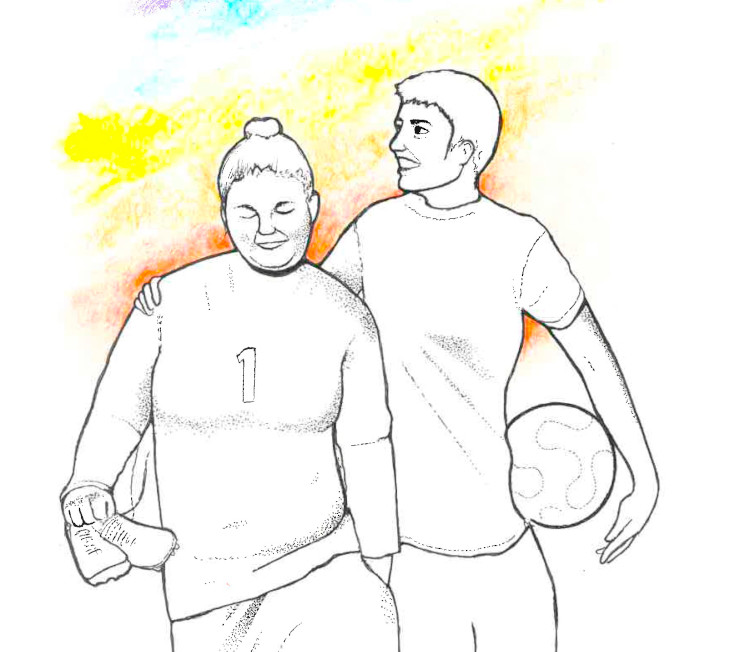Beyond the clubs
Queer spaces for recreation change the game
Months ago, I nervously showed up to an Out There Winnipeg (OTW) queer volleyball practice for the first time. Awkwardly, I made conversation with the others. The vibes changed quickly.
Making queer friends can be hard, but it doesn’t have to be. Many folks around the city would like to forge lasting communities that promote growth, experimentation and fun.
Now, at Out There Winnipeg’s volleyball league, we laugh, cheer and live what feels like an IRL episode of Haikyuu. It’s fun. It has deepened my perspective of and connection with queer communities in Winnipeg. There are such wonderful people in this city, but the trick is finding them.
OTW hosts sports and activity groups for 2SLGBTQIA+ folks to help create safer queer spaces in Winnipeg. Their events are typically free or open to participants at a low cost.
It feels good to get involved in daytime spaces for queerdos. It’s important for queer people to have opportunities to get together outside of the nightclub scene, which tends to be centred around alcohol and hookups.
These things aren’t inherently bad. Safe-consumption sites and communicative hookups are great, but I’ve always found that daytime connections tend to be more supportive and longstanding. Relationships that integrate into pre-existing routines have less resistance and therefore more opportunities to blossom.
It seems the world lacks community in many ways. Distance feels ever-increasing, along with ideals of individualism promoted by social media and capitalism. In my experience, finding community authentically allows for increased stability in social life based on communal support rather than my own bootstrapping abilities.
The cooperative nature of hobby groups work as continual icebreakers that aid in community building. In volleyball, people are in constant communication, yelling “mine!” or “here!” and making silly comments to keep the vibes up. Also, the ritual of going to activities once a week gives participants more chances to foster and stabilize connections. It’s truly a beautiful process.
Lots of queer people have uncomfortable experiences with sports. Thomas Novak, OTW’s secretary, pointed out that “many queer kids remember taunts and (homophobic) slurs that are still common in locker rooms.”
He’s right. Sports don’t typically foster accepting environments for queer youth. In many cases, these spaces make people feel exposed when they are already in a vulnerable position. In grade school, it is common for queer kids to have anxiety-inducing experiences, leading them to believe that they don’t enjoy sports and physical activity – or feeling like they aren’t allowed to.
A queer space for recreation changes the game. We’re reclaiming it, re-imagining it and having fun with it. These leagues and groups are spaces where perceived heterosexuality, conformity and advanced skills aren’t prerequisites for participation.
Creating a comfortable, community-oriented environment allows us to have experiences and opportunities we were previously denied. It seems everyone is always laughing and having fun. This is how it should be!
Find more information at outtherewinnipeg.ca.
Evawn Michaleski (they/them) is a University of Winnipeg sociology and psychology student who loves seeing queer people happy.
Published in Volume 77, Number 20 of The Uniter (March 2, 2023)








